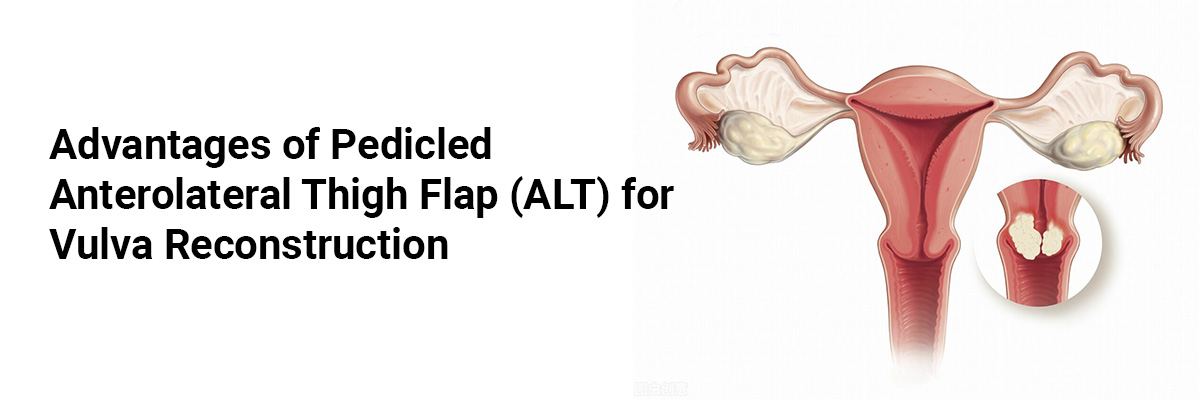
Advantages of Pedicled Anterolateral Thigh Flap (ALT) for Vulva Reconstruction
Vulval cancer is a rare disease that accounts for 1–3% of all female genital tract malignancies. A lot of patients wait until their condition gets advanced before seeking medical attention. The management usually involves inguinofemoral lymphadenectomy and radical vulvectomy.
The present case report detailed the treatment of a 27-year-old multiparous woman who presented with perineal itching and swelling in the genital region for the past one year.
Examination showed a large firm proliferative growth of size 11*7*5 cm lesion involving bilateral labia majora and minora. The lesion involved the clitoris and was 0.5 cm away from the urethra while the lower edge of the lesion was 2 cm away from the anal margin. It was bordering the margin of the vagina bilaterally and hence, owing to the large size of the lesion, tenderness was also present. Bilateral inguinofemoral lymph nodes were 2 cm in size, firm and mobile in nature.
Investigations included liquid-based cytology of the cervix which was suggestive of negative for intraepithelial lesion or malignancy (NILM). Vulval biopsy displayed well-differentiated squamous cell carcinoma. Contrast-enhanced magnetic resonance imaging (MRI) revealed a 7*6 cm ulceroproliferative growth bordering the urethral orifice and left lateral wall of the vagina. Fine needle aspiration cytology (FNAC) from the inguinal nodes also diagnosed her with metastatic squamous cell carcinoma.
She was managed with total deep vulvectomy and bilateral inguinofemoral lymph node dissection. The whole lesion, including the bilateral labia majora and the distal 1 cm of the urethra, was removed with a 1 cm margin, however, resulting in a significant defect requiring reconstruction. To address the defect, a V–Y plasty was initially performed, followed by the use of an anterolateral thigh (ALT) flap due to inadequate coverage.
The flap was harvested based on the vastus lateralis muscle and was successfully tunneled to the perineal defect. Post-operatively, the patient received intravenous antibiotics and prophylactic measures, with regular monitoring of the flap's viability. By day two, ambulation, physiotherapy, and a soft diet had been initiated and ALT drain was taken out. The VY flap at the vaginal edge showed only slight dehiscence on the eighth post-operative day. On post-operative day 11, she was released once the wound had healed. The final histopathological report revealed squamous cell carcinoma with negative margins, though one lymph node was positive for malignancy, necessitating adjuvant radiotherapy.
The report emphasizes the goals of vulval reconstruction, including tension-free closure and maintaining functional anatomy, while also highlighting the advantages of the ALT flap in such procedures. The innovative combination of V–Y plasty and ALT flap demonstrates the value of collaborative surgical planning in complex cases.
Source: Begum, D., Barmon, D., Baruah, U. et al. Pedicled Anterolateral Thigh Flap (ALT) for Vulva Reconstruction: Journey to a New Horizon. J Obstet Gynecol India. 2024. https://doi.org/10.1007/s13224-024-02060-x














Please login to comment on this article